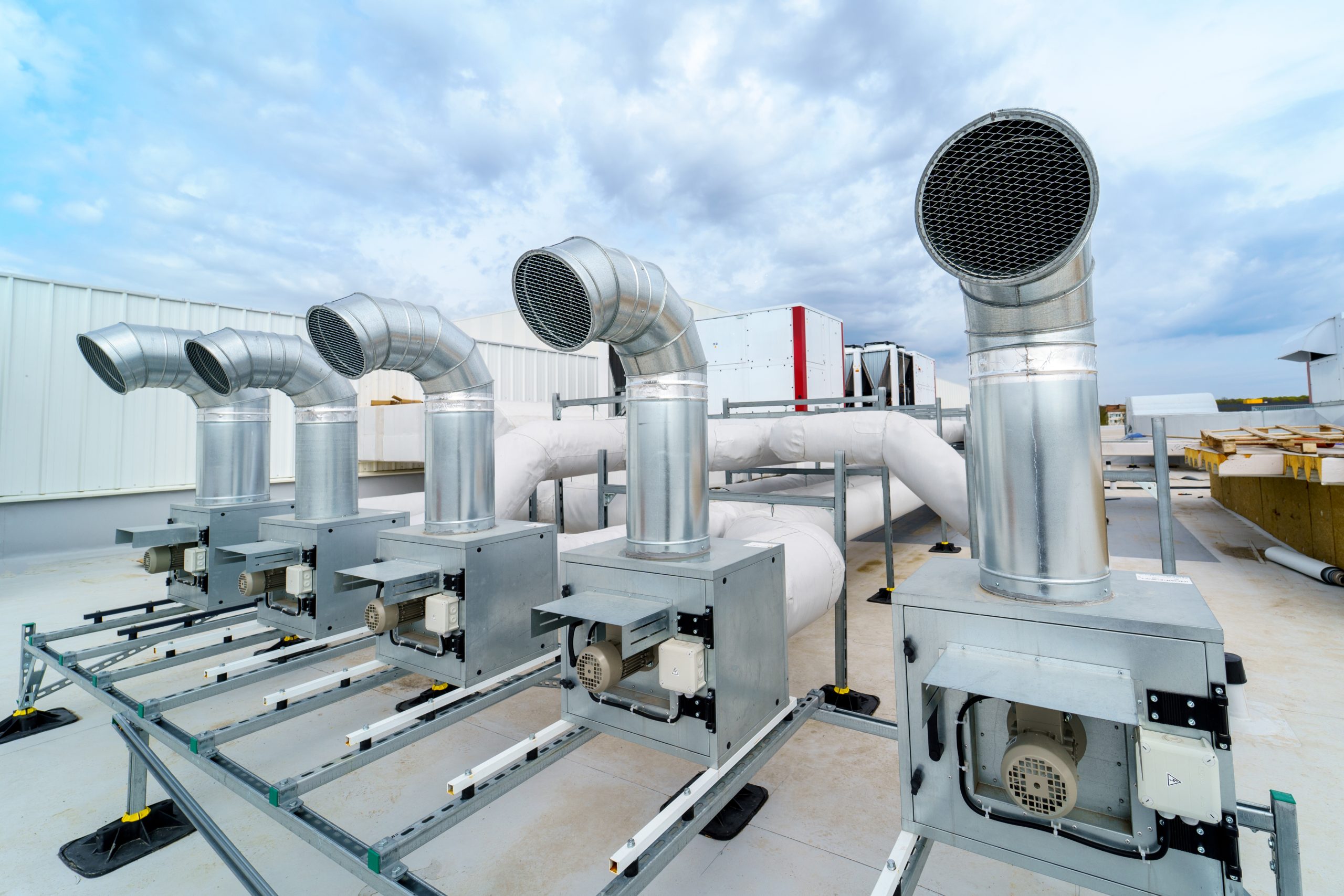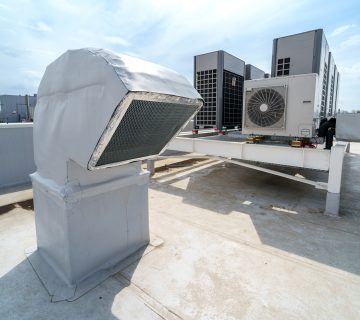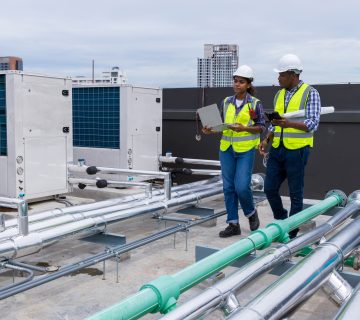Seasonal HVAC maintenance is crucial for ensuring heating and cooling systems operate efficiently throughout the year. As an HVAC technician, performing regular maintenance keeps systems running smoothly and helps prevent costly breakdowns. However, HVAC maintenance also comes with potential hazards, which is why it’s important to follow essential safety practices during every job.
In this guide, we’ll explore key seasonal HVAC maintenance tips and important safety precautions every technician should follow to protect themselves and ensure safe operations.
Fall HVAC Maintenance Tips
As temperatures cool, fall is the ideal time to inspect and service heating systems. Preparing furnaces, heat pumps, and other heating equipment ensures efficient performance throughout the colder months.
1. Inspect and Clean Heating Components:
- Check and clean burners, heat exchangers, and ignition systems to ensure they are free of dirt and debris.
- Verify proper airflow by inspecting filters and replacing them if needed.
2. Test Thermostat Functionality:
- Ensure that the thermostat is accurately reading the indoor temperature and that the heating system responds to changes in the thermostat’s settings.
3. Check for Gas Leaks (if applicable):
- If working with gas heating systems, always use a gas leak detector to identify potential hazards.
Safety Tip: Always wear protective gloves and safety goggles when inspecting or cleaning components. When dealing with gas systems, ensure proper ventilation and avoid open flames.
Winter HVAC Maintenance Tips
Winter is when heating systems are most active. Technicians need to be vigilant in their inspections to prevent breakdowns during peak usage.
1. Perform Regular Filter Changes:
- Recommend that clients change their HVAC filters regularly to prevent clogs that can reduce efficiency and airflow.
2. Inspect and Clean Ductwork:
- Blocked or dirty ducts can lead to poor indoor air quality and reduced heating efficiency. Ensure ducts are clear of obstructions.
3. Check Heating System Efficiency:
- Test the system’s efficiency to ensure it is providing adequate heat without overworking. This can prevent strain on the system and lower energy bills for clients.
Safety Tip: When working in cold or wet environments, ensure proper footwear with slip-resistant soles to prevent accidents. Always use insulated tools and maintain awareness of your surroundings when working on rooftops or in elevated locations.
Spring HVAC Maintenance Tips
As the weather starts to warm, spring is the time to switch focus from heating systems to cooling systems like air conditioners and heat pumps.
1. Clean Condenser Coils:
- Dirty condenser coils reduce the efficiency of air conditioning units. Make sure to clean the coils thoroughly for optimal performance.
2. Check Refrigerant Levels:
- Low refrigerant can impact cooling performance. Always ensure refrigerant levels are within the manufacturer’s recommended range.
3. Inspect Electrical Components:
- Check wiring and connections to ensure they are secure and free from damage. Faulty wiring can cause malfunctions or pose electrical hazards.
Safety Tip: Always turn off power to the unit before inspecting or cleaning any electrical components. Use a multimeter to test for electrical hazards and always wear insulated gloves.
Summer HVAC Maintenance Tips
During the hot summer months, air conditioning systems work overtime to maintain comfortable indoor temperatures. Keeping systems in good condition can help avoid breakdowns during peak usage.
1. Check Thermostat Calibration:
- Ensure the thermostat is properly calibrated to accurately measure and maintain the desired indoor temperature.
2. Inspect the Air Handler and Blower Motor:
- Lubricate any moving parts, such as blower motor bearings, to reduce wear and tear. Check the air handler for any signs of leaks or damage.
3. Clear the Area Around Outdoor Units:
- Outdoor air conditioning units can be obstructed by debris like leaves and dirt. Clear the area to ensure proper airflow.
Safety Tip: Stay hydrated and take regular breaks when working in extreme heat. Heat stress is a common risk for HVAC technicians during the summer, so wear lightweight clothing and avoid overexertion.
General Safety Tips for HVAC Technicians
Beyond seasonal tips, there are several general safety precautions every HVAC technician should follow to reduce the risk of injury or accidents on the job.
1. Use Proper Personal Protective Equipment (PPE):
- Always wear appropriate PPE, including safety goggles, gloves, and respirators (if necessary), to protect against chemicals, debris, and other hazards.
2. Lockout/Tagout Procedures:
- Before performing any maintenance or repair work, always turn off and lock out the power source to prevent accidental activation of the system.
3. Be Aware of Electrical Hazards:
- HVAC systems involve high-voltage components. Use insulated tools, test electrical components for live current, and avoid contact with exposed wires.
4. Ladder Safety:
- Many HVAC technicians work in elevated spaces. Ensure that ladders are stable and placed on even ground. Never exceed the ladder’s weight limit, and always maintain three points of contact.
5. Avoid Confined Space Hazards:
- Some HVAC systems are located in confined spaces, which can pose oxygen deficiency risks. Always monitor air quality and use the proper equipment if entering confined areas.
Seasonal HVAC maintenance is essential for keeping systems running smoothly, but safety should always come first. By following these essential maintenance and safety tips, HVAC technicians can reduce the risk of injury and ensure optimal system performance for their clients. At EDI HVAC&R, we’re committed to providing the highest-quality HVAC parts and expert advice to keep your maintenance routine on track. Contact us today for all your HVAC needs.



